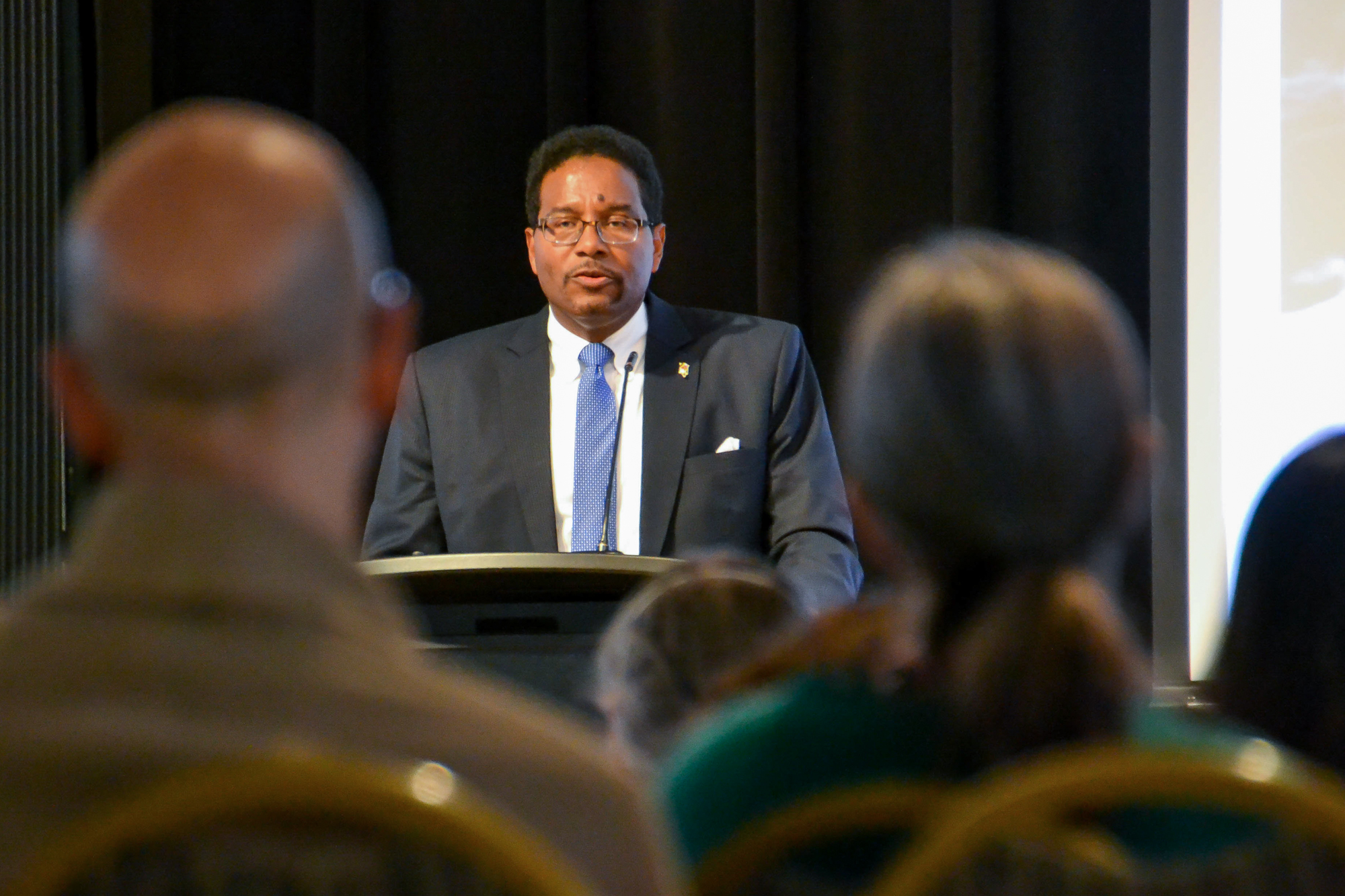Views expressed in opinion columns are the author’s own.
It’s not inherently wrong for high-profile university officials to serve on various boards and committees, lending their expertise in higher education. But it becomes a serious problem when the actions of these boards conflict with the goals of their respective universities.
University president Darryll Pines serves on the Massachusetts Institute of Technology Corporation, the governing board of trustees for MIT. The board invests undisclosed amounts of money into dirty energy companies. To demonstrate his commitment to fighting climate change, he should resign from this post.
Universities frequently invest their endowments into a variety of companies through stocks, bonds, and mutual funds with the goal of increasing their funding. Managed through private entities, the allocation of financial resources within these endowments are shielded from public scrutiny.
Since as early as 2011, student activists across the country have pushed for their schools to divest from fossil fuel companies. These investments support the operations of companies that are responsible for polluting the environment, contributing to the effects of climate change and environmental injustice.
In 2016, the University System of Maryland Foundation, which oversees this university’s endowment, agreed to halt direct investment in coal, oil, and natural gas companies. The foundation’s investment in fossil fuels, which totaled millions of dollars, has begun to divest.
The MIT Corporation, however, won’t commit to any form of divestment, consistently rebuffing student action in favor of it. Students at MIT have held sit-in protests and even brought forward lawsuits calling into question the legality of the corporation’s fossil fuel investments. Similar efforts have shaken other top universities such as Yale, Princeton and Stanford.
In an interview with The Diamondback, Pines said all universities have an imperative to “stem the tide” of increasing temperatures to mitigate climate change. His words reflect some of the actions he has taken as president of this university. In particular, he has publicly expressed support for university research to help address climate change and has announced a number of campus environmental initiatives.
However, Pines’ complicity with MIT investing money into companies that are exacerbating the effects of the climate crisis directly contradicts these same efforts. That’s why if Pines cannot exercise his influence as a member of the corporation toward advocating for divestment, he should resign to express his disapproval.
When speaking to The Diamondback, Pines demurred, questioning how his board membership is related to sustainability at this university. The answer is that it’s difficult to reconcile Pines’ membership with this university’s stated commitment to fighting climate change. As a member of the corporation, Pines could be perceived as endorsing these investments, which could conflict with this university’s efforts to take on climate change.
While Pines’ administration pursues an ambitious goal to transform this university into a Do Good campus, abdicating his social responsibility to tackle climate change could alienate university shareholders. Prospective students, faculty and donors, for instance, could develop a negative view of this university’s reputation and shy away from attending, teaching, conducting research and making contributions.
MIT’s investments in fossil fuels also conflict with a fundamental goal of universities to promote social progress and further intellectual growth. Climate change’s effects pose enormous risks to the future of young people and experts widely recognize it as an existential threat. Actively harming the environment for future generations is incompatible with the goal of preparing students for the future.
Resigning from the MIT board is a strong public stance that could also reverberate throughout fossil fuel divestment movements nationwide. By demonstrating a firm intolerance for environmentally destructive actions, Pines can encourage other university boards of trustees to take similar steps towards divestment.
Stepping away would also signal to students at this university that Pines understands and recognizes the concerns of activists and other students who will inevitably face the impacts of climate change. Demonstrating a willingness to engage with the reservations of the campus community is a powerful message to send as president.
Pines should resign his membership from the MIT Corporation to demonstrate both his – and this university’s – commitment to fighting the climate crisis. Above all else, serving as an ethical leader requires fulfilling certain moral responsibilities. Protecting the future of our planet is arguably the biggest moral imperative we share. Pines should take it more seriously.
Dhruvak Mirani is a freshman computer science and government and politics major. Mirani can be reached at contact@dhruvak.com.



